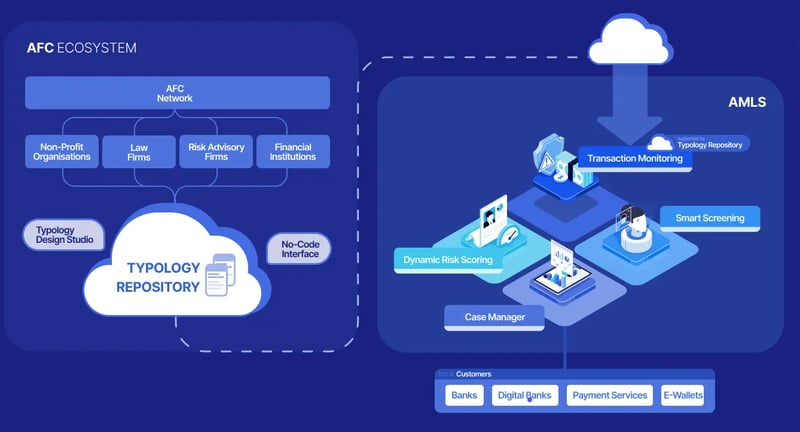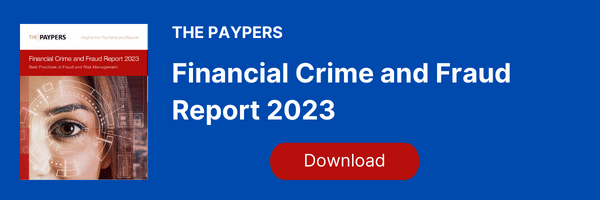Tackling Proliferation Financing: A Guide for Compliance Officers
In an increasingly interconnected global economy, understanding the various forms of financial risks is paramount. One such risk, often lurking in the shadows, is "proliferation financing." It represents an intricate web of financial transactions designed to support the spread of weapons of mass destruction.
According to the 2022 National Proliferation Financing Risk Assessment (NPFRA), 95 UN member states have at least one measure that penalizes financing related to illicit proliferation. The same report also notes that the total value of global trade in goods and services that are at risk of being used for proliferation purposes is estimated to be in the range of $1.5 to $3 billion per year.
This article aims to demystify what proliferation financing is, counter-proliferation rules, its practical implications, and the importance of internal sanctions protocols.
What is Proliferation and Proliferation Financing?
The Concept of Proliferation
"Proliferation" typically refers to the rapid increase or spread of something, be it information, diseases, or, in this case, weapons of mass destruction (WMDs). The term is most commonly used in discussions surrounding the spread of nuclear, chemical, and biological weapons.
Defining Proliferation Financing
Proliferation financing is the act of providing funds or financial services which are used, in whole or in part, for the manufacture, acquisition, or distribution of weapons of mass destruction and their means of delivery. It's a serious offence and is considered an existential threat to global security.
Read More: Proliferation Financing in Malaysia
What are the Counter-Proliferation Financing Rules?
Governments and international bodies like the United Nations have put forth a set of rules and regulations aimed at countering the financing of proliferation.
UN Resolutions and Sanctions
Among the most potent tools in the counter-proliferation arsenal are UN Security Council sanctions, which can be applied to both nations and individual entities engaged in proliferation activities.
Domestic Laws
On a domestic level, countries enact stringent laws that align with international commitments to counter proliferation financing, often imposing heavy fines and criminal charges on those found guilty.
What are the Practical Implications?
Understanding the theory behind counter-proliferation financing rules is just the beginning; applying them in a real-world context is where the rubber meets the road.
Financial Institutions and Due Diligence
Financial institutions are at the forefront of this battle, often needing to perform extensive customer due diligence to ensure they're not inadvertently supporting proliferation activities.
The Role of Regulatory Bodies
Regulatory bodies oversee the implementation of counter-proliferation finance measures, ensuring that firms are adhering to both domestic and international laws.
How Could Proliferation Financing Affect Your Firm?
Financial institutions and even some non-financial businesses could find themselves entangled in the complex web of proliferation financing without proper awareness and safeguards in place.
Reputational Risk
Being implicated in proliferation financing can have a devastating impact on a company’s reputation. The consequences go far beyond legal ramifications and could result in the loss of business partners and customer trust.
Legal Consequences
Beyond reputational damage, there are severe legal repercussions for organizations found guilty of aiding in proliferation financing. These could include hefty fines, the revocation of business licenses, and even the imprisonment of top executives.
How Important Are Internal Sanctions Protocols?
As the risks associated with proliferation financing grow, internal sanctions protocols have become more than just a compliance formality; they are an operational necessity.
Internal Audits and Reviews
Regular internal audits and reviews can help identify gaps in existing protocols and offer the chance to rectify these issues before they become a liability.
Employee Training
It's critical to ensure that employees at all levels understand the importance of compliance with counter-proliferation financing rules, thereby reducing the likelihood of unwitting violations.
The FATF Guidance on Proliferation Financing
The Financial Action Task Force (FATF) has developed guidance on proliferation financing risk assessment and mitigation. This guidance aims to help countries, financial institutions, and designated non-financial businesses in assessing and mitigating the risks associated with proliferation financing.
The FATF guidance on proliferation financing includes the following key points:
- Risk Assessment: The guidance provides a framework for countries and entities to assess the risks associated with proliferation financing. It helps identify vulnerabilities, assess the potential impact, and prioritize resources for effective risk mitigation.
- Mitigation Measures: The guidance outlines various measures that can be implemented to mitigate the risks of proliferation financing. This includes enhancing due diligence procedures, implementing targeted financial sanctions, strengthening information sharing and cooperation, and raising awareness among relevant stakeholders.
- Public Consultation: The FATF conducts public consultations on its guidance to gather feedback from stakeholders. This ensures that the guidance is comprehensive, and practical, and takes into account different perspectives and expertise
- Implementation of UN Security Council Resolutions: The FATF guidance emphasizes the importance of implementing the financial provisions of United Nations Security Council Resolutions (UNSCRs) related to countering the proliferation of weapons of mass destruction. It provides guidance on how countries can effectively implement these provisions.
By developing this guidance, the FATF aims to strengthen the global response to proliferation financing and contribute to international peace and security. It encourages countries and entities to allocate appropriate resources and take necessary measures to prevent unwitting support or involvement in proliferation financing networks or schemes
Empowering Financial Institutions Against Proliferation Financing: Tookitaki's Innovative Solution
Proliferation financing, a critical concern in the realm of financial crime prevention, requires innovative solutions to thwart the funding of weapons of mass destruction and other dangerous activities. In this crucial fight, Tookitaki steps forward with its expertise in advanced technology and financial crime detection. By leveraging its Anti-Money Laundering Suite (AMLS) and Anti-Financial Crime (AFC) Ecosystem, Tookitaki offers financial institutions a potent tool to address proliferation financing effectively.
Tookitaki's AMLS provides financial institutions with a holistic approach to combating proliferation financing. Its machine-learning algorithms analyze intricate transaction patterns and behaviours, enabling institutions to identify potentially suspicious activities related to proliferation financing. The solution's dynamic risk scoring adapts to evolving risks, ensuring that even the most sophisticated proliferation financing attempts are detected.
By integrating with the AFC Ecosystem, financial institutions gain access to a wealth of collective knowledge, including typologies and techniques specific to proliferation financing. This community-based approach ensures that institutions are armed with the latest insights and strategies to detect and prevent proliferation financing.
In the face of evolving global security threats, Tookitaki's commitment to financial crime prevention extends to addressing proliferation financing. Through its advanced technology and collaborative ecosystem, Tookitaki empowers financial institutions to take proactive measures against the illicit funding of activities that pose a grave threat to international security.

Conclusion
Proliferation financing is a serious global issue that has implications not only for national security but also for the operational integrity of financial institutions and other businesses. Understanding the rules that counter such financing and implementing rigorous internal protocols are key steps in mitigating risks. Through proper due diligence, employee training, and internal audits, your firm can navigate the complex landscape of proliferation financing.
By keeping abreast of the latest developments and understanding the nuances involved, we can collectively contribute to a safer, more secure global financial ecosystem.
Frequently Asked Questions (FAQs)
What are the stages of proliferation financing?
The stages include the sourcing of funds, financial transfers, and the eventual allocation to proliferation activities.
What is proliferation in anti-money laundering?
In anti-money laundering, proliferation refers to the financial activities that support the spread of weapons of mass destruction.
What is proliferation financing threats?
These are the various risks and mechanisms through which illicit funds are channelled to support the proliferation of WMDs.
How do you identify proliferation financing?
Identification often involves rigorous due diligence, monitoring of financial transactions, and cross-referencing against sanctions lists.
Anti-Financial Crime Compliance with Tookitaki?




